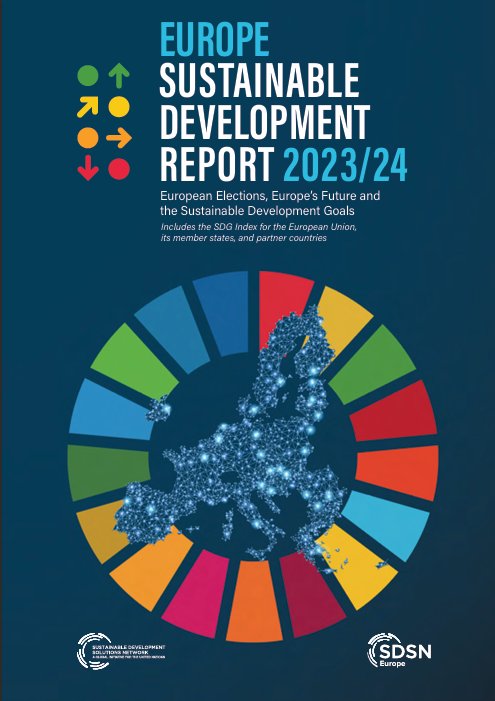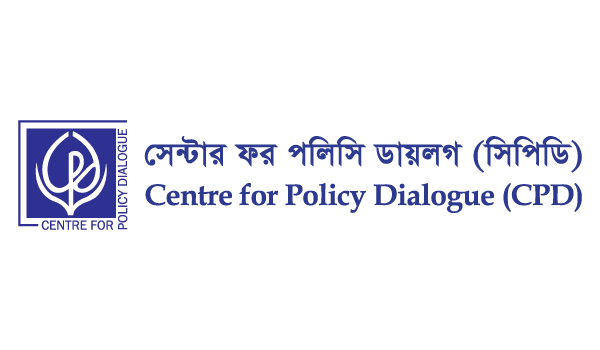The report outlines 10 priority actions for incoming EU leadership to expedite SDG implementation in Europe and globally. It thoughtfully evaluates the SDG progress of 38 countries, with Finland, Sweden, and Denmark at the forefront. In addition to this, it includes a unique spillover index, a Leave-No-One-Behind index, and interactive maps demonstrating each country’s performance across the 17 SDGs. Europe Sustainable Development Report 2023/24
It offers detailed profiles for each EU member state and the EU, providing insightful perspectives into performance trends for each SDG and indicator. Underscores the EU’s necessary decisive action to prevent environmental and social tipping points in a divided and multipolar world. Moreover, it is a cooperative endeavor by independent experts from the Sustainable Development Solutions Network (SDSN) and SDSN Europe. Its central aim is to influence policy-making and advocate for sustainable development practices.
Key Findings
Youth Employment and Education
- The percentage of youth not in employment, education, or training (NEET) stands as a key indicator when assessing the engagement of young people in the labor market and education system. Further, unemployment rates and the at-risk-of-poverty rate among those employed serve as important factors that need to be considered when evaluating the economic well-being of the youth population.
Modern Slavery and Labor Rights
- The number of victims of modern slavery embodied in imports sheds light on the prevalence of exploitative labor practices within the supply chain. Therefore, protecting fundamental labor rights and the incidence of fatal work-related accidents are critical to ensuring decent work and economic growth.
Gender Equality
- Gender disparities in employment, pay, and representation in decision-making positions, such as national parliaments and senior management roles, are key indicators of progress towards gender equality.
Infrastructure and Innovation
- Metrics related to industry, innovation, and infrastructure, such as patent applications, research and development expenditure, and trade and transport-related infrastructure quality, are indispensable for assessing a country’s competitiveness and technological advancement.
Digital Skills and Access
- The percentage of the population with basic digital skills, internet access gaps between urban and rural areas, and households with broadband access are crucial for understanding digital inclusion and connectivity.
Environmental Sustainability
- Indicators related to clean water and sanitation, renewable energy, recycling rates, air pollution exposure, and greenhouse gas emissions provide insights into a country’s environmental performance and efforts towards climate action.
Inequality and Poverty
- Measures such as the Gini Coefficient, Palma ratio, and overcrowding rates among low-income populations are important for assessing income inequality and social disparities.
Overall
Part 1. Towards a new European Deal for the Future: Achieving the Sustainable Development Goals in a Fragmented and and Multipolar World
Explores the challenges and opportunities in attaining the Sustainable Development Goals (SDGs) in a divided and multipolar world, specifically within the European context. It provides a detailed overview of the current state of European sustainable development. Furthermore, it anticipates upcoming challenges and potential routes towards a more sustainable and resilient future. Hence, this section sets the groundwork for the rest of the report.
Context Setting
- Contextualises the current global landscape, notably geopolitical shifts, economic uncertainties, and environmental challenges. It highlights the importance of collective action and international cooperation in addressing complex, intertwined issues such as climate change, inequality, and sustainable development.
European Perspective
- Emphasizes the pivotal role of Europe in advancing the SDGs and ardently promoting sustainable development both within the region and on a global scale. Furthermore, it engages in a vital discussion about the pressing need for a new European Deal. This ideally aligns economic growth with social inclusion, environmental protection, and innovation.
Challenges and Opportunities
- Begins by outlining the challenges faced by Europe in achieving the SDGs, notably rising inequality, climate change, digital transformation, and demographic shifts. Additionally, it identifies opportunities for progress, such as leveraging innovation, investing in green technologies, and fostering social cohesion.
Policy Recommendations
- Offers policy recommendations for European policymakers to accelerate SDG progress significantly. These suggestions include integrating the SDGs into national strategies, greatly enhancing data collection and monitoring mechanisms, and actively fostering partnerships with stakeholders across various sectors.
Multilateral Cooperation
- Multilateral cooperation and regional and global partnerships are essential for addressing transboundary challenges and achieving sustainable development goals. Consequently, this section emphasizes the need for coordinated efforts among European countries, international organizations, and civil society to drive meaningful change.
Call to Action
- Ends with a powerful call to action, urging all stakeholders to prioritize sustainable development. It stresses embracing innovation and inclusivity as essential steps towards a more sustainable and equitable future. Moreover, it underscores the urgent need for collective action to confront pressing global challenges. Furthermore, it demonstrates the potential for Europe to set a leading example in advancing the Sustainable Development Goals (SDGs).
Part 2. Performance of European Countries Against the SDGs
Assesses the performance of European countries in terms of the Sustainable Development Goals (SDGs). It offers a comprehensive analysis of the progress made by these countries towards achieving the SDGs. This information is invaluable for policymakers, stakeholders, and the public, guiding informed decision-making and actions for sustainable development.
Overall Assessment
- Begins by offering a comprehensive evaluation of how European countries progress towards the SDGs, notably highlighting areas of strength and areas that necessitate improvement. Subsequently, it provides a nuanced analysis of each country’s performance across the 17 SDGs. It considers economic development, social inclusion, environmental sustainability, and governance factors.
Performance Indicators
- Various performance indicators are used to assess each country’s progress, including data on poverty rates, education levels, healthcare access, environmental quality, gender equality, and economic growth. The report utilizes a range of quantitative and qualitative metrics to provide a holistic view of sustainable development performance.
Country-Specific Analysis
- Presents individual country profiles, each meticulously detailing a nation’s performance against the SDGs. It highlights notable achievements, highlighting existing challenges and trends in poverty reduction, climate action, sustainable consumption, and peace and justice.
Regional Comparisons
- Evaluates various European countries’ performance, pinpointing shared trends and discrepancies. It scrutinizes regional dynamics in meeting the Sustainable Development Goals (SDGs) and highlights potential areas for collaboration and knowledge exchange between neighboring nations.
Policy Implications
- Provides valuable insights into the policy implications of the SDG performance data, thereby suggesting areas where targeted interventions and necessary policy reforms are needed. Furthermore, it underscores the importance of evidence-based policymaking, active stakeholder engagement, and crucial cross-sectoral coordination to drive progress towards the SDGs effectively.
Monitoring and Reporting
- Underscores the significance of robust monitoring and reporting mechanisms to accurately track SDG progress over time. Specifically, it fervently advocates for transparent data collection and regular reporting. Moreover, it emphasizes the vital role of accountability mechanisms to ensure that countries diligently stay on track towards achieving the SDGs.
Future Outlook
- Concludes by outlining the future outlook for sustainable development in Europe, simultaneously highlighting emerging challenges and opportunities. It insists on the need for continued commitment to the SDGs, urging innovative approaches to address complex issues. Moreover, it calls for national, regional, and global collaboration to build a more sustainable and inclusive future.
Country Profiles
Provides thorough insights into each European country’s performance regarding the Sustainable Development Goals (SDGs). This section gives a detailed analysis of Europe’s progress towards the SDGs, offering valuable information for policymakers, stakeholders, and the public. This information can guide decision-making and encourage progress towards sustainable development goals.
Individual Country Analysis
- Analyses each country’s progress towards the SDGs, notably highlighting key achievements, challenges, and emerging trends. Furthermore, it offers a comprehensive overview of how each nation methodically addresses poverty, inequality, climate action, health, education, and other sustainable development priorities.
Performance Indicators
- The country profiles encompass a broad range of performance indicators and data points, essential in assessing the progress across the 17 SDGs. These indicators, which might cover economic growth, social inclusion, environmental sustainability, governance, and gender equality, provide a holistic view. Therefore, they are instrumental in understanding each country’s efforts towards sustainable development.
Comparative Analysis
- Includes comparative analyses with other countries in the region or globally to benchmark performance and identify areas for improvement. Countries can learn from each other’s experiences and best practices in advancing sustainable development goals by comparing indicators and trends.
Policy Recommendations
- Offers policy recommendations tailored to each country, considering their unique challenges and opportunities. Consequently, these recommendations aim to guide policymakers in thoughtfully implementing targeted interventions, strategic reforms, and timely initiatives to accelerate SDG progress.
Data Transparency
- Importantly, country profiles emphasize the crucial role of data transparency, accuracy, and reliability in monitoring and reporting sustainable development progress. By doing so, the profiles ensure accountability and facilitate informed decision-making at the national level. This is achieved through the provision of detailed data sources and methodologies.
Stakeholder Engagement
- Spotlights stakeholder engagement and collaboration’s significant role in driving sustainable development outcomes. Countries can foster a collective approach towards achieving the SDGs by involving various entities such as government agencies, civil society organizations, businesses, and communities.
Future Outlook
- Finishes by presenting a forward-looking perspective on each country’s trajectory towards sustainable development. It outlines future challenges, identifies opportunities, and pinpoints priorities for action, all to build a more resilient, inclusive, and sustainable future for all citizens.



